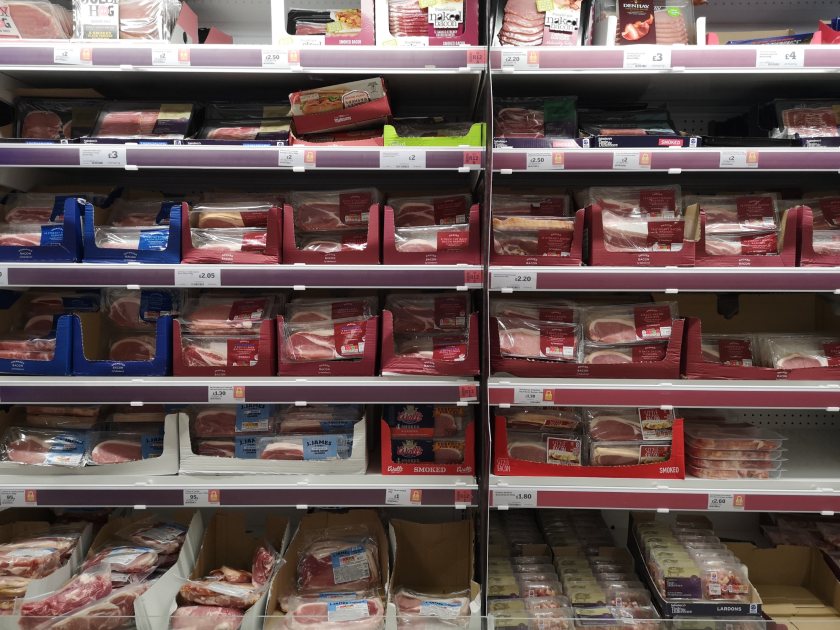
Proposed food labelling plans ranking products by method of production will add cost and complexity while failing to deliver transparency, the pig sector has warned.
Defra plans to introduce new labels ranking products by method of production (MOP) and country-of-origin labelling (COOL) in a bid to improve transparency.
The government, which launched a consultation on the matter in March, said the move help consumers make decisions that "align with their values".
But the proposal to introduce MOP labels on pork, chicken and eggs have been met with forceful opposition from across the supply chain.
Despite this, Defra is again proposing plans for a five-tier mandatory label, covering domestic and imported products.
The draft standards set out how for pigs, free range and outdoor bred-pork would be categorised in the highest tiers, with tier 3 encompassing ‘enhanced indoor’, followed by ‘standard’ indoor, representing ‘baseline UK welfare regulations’.
The lowest tier would be ‘unclassified, non-UK standard’ for product which does not meet the UK’s legal baseline.
While the National Pig Association (NPA) said it was broadly supportive of the COOL proposals, which include increased visibility of origin labelling and new rules around the use of flags on labels, it said Defra would be ‘foolhardy’ to proceed with the MOP proposals.
The NPA said its primary objection was that method of production was "not an indicator of good or poor welfare".
The body said it was 'widely accepted' that good animal husbandry and management procedures have a far greater impact on the welfare of pigs than the system in which they are raised.
In a letter to Defra, NPA Chairman Rob Mutimer highlighted the pig sector's ‘many significant concerns’ over the proposals.
“Any measure of animal welfare on food packaging should be scientifically accurate and representative and, therefore, based on outcomes and not inputs," he said.
“Indeed, the consultation itself, acknowledges that welfare outcomes are a better measure of welfare, but that due to the complexity this would entail it is not being considered.”
He said the five-tier approach would ‘denigrate’ ‘standard’ production, that is Red Tractor Farm Assurance, to the second to lowest tier, despite these standards going beyond the legislated minimum for animal welfare.
“Enacting these proposals would undermine domestic production by damaging the trust that consumers place in British pork and in Red Tractor,” he said.
"The complex nature of pig production in the UK means it would be near impossible to accurately identify one system to cover the whole life of many pigs.
"For example, pigs can be born and then reared outside for around half their lives and spend the remainder of their lives inside. It would, therefore, be misleading to consumers to apply a lower welfare tier in this case."
The NPA's response points out that clear labelling for pork products "already exists" and that the proposals would "only serve to confuse consumers, rather than delivering the accurate and meaningful information some require".
The letter also highlights the ‘significant’ cost and complexity of implementing the rules, particularly as individual pork cuts are often downgraded and traded between processors.
Mr Mutimer concluded: “We believe the MOP proposals will add cost, extra burdens and complexity throughout the supply chain, while completely failing in their aim of enlightening consumers about animal welfare and driving improvements on farm.
"We believe it would be foolhardy to press ahead with this policy.”
